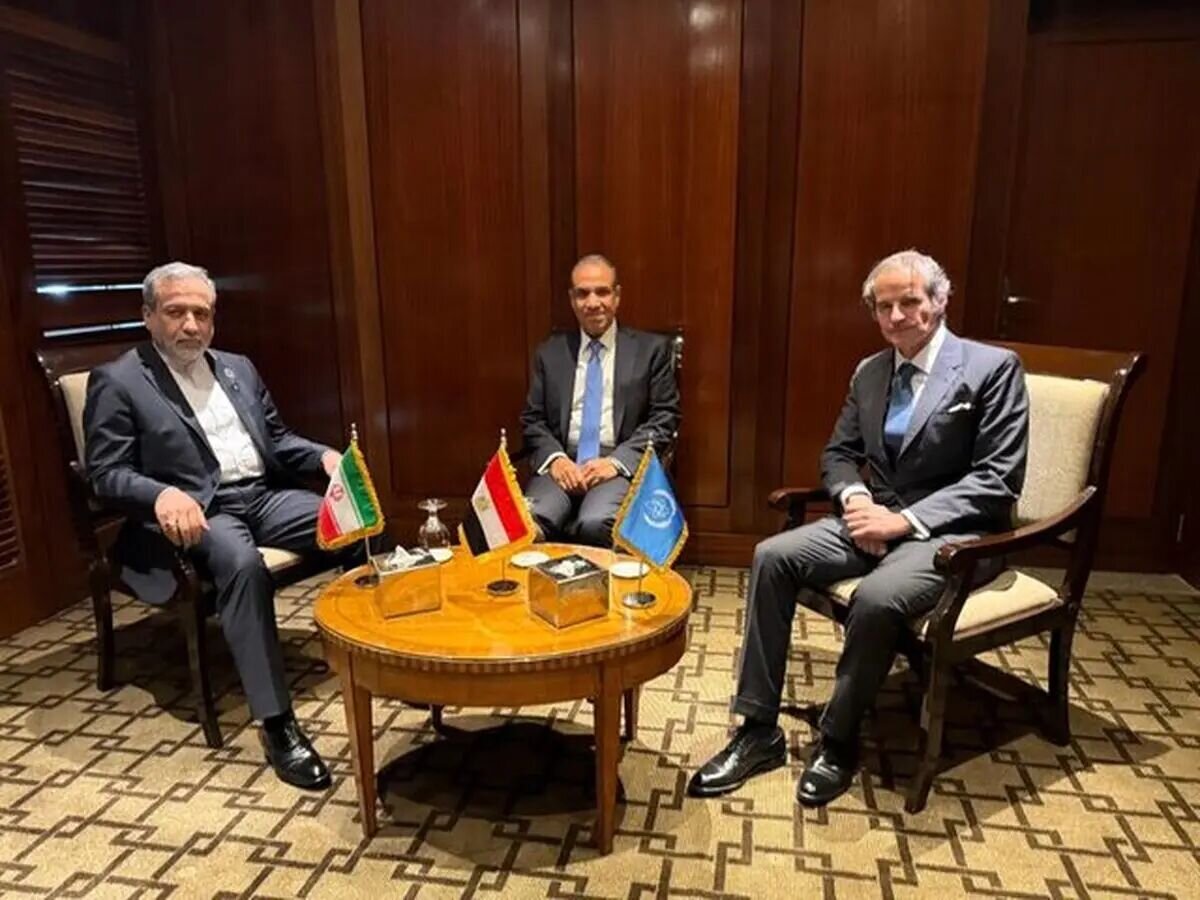No nuclear deal without enrichment rights: Araghchi

TEHRAN – Iranian Foreign Minister Abbas Araghchi has reiterated that any nuclear agreement with Western powers will be contingent upon full recognition of Iran’s right to enrich uranium, stressing that diplomacy remains the preferred route for resolving tensions.
Speaking at a joint press conference in Cairo alongside his Egyptian counterpart, Araghchi addressed key regional and international issues, including the Gaza crisis, Iran’s nuclear program, and the path forward for Tehran-Cairo relations.
In response to the latest written proposal from the United States concerning the stalled nuclear talks, Araghchi said Tehran would soon deliver an “appropriate response.” However, he made it clear that Iran’s inalienable right to enrich uranium under the Nuclear Non-Proliferation Treaty (NPT) must be fully respected for any agreement to move forward.
“We are ready to build trust and assure the world that Iran is not seeking nuclear weapons,” he said. “But if the objective of negotiations is to strip Iran of its peaceful nuclear rights, there will be no deal.”
He emphasized that uranium enrichment is a major scientific achievement accomplished through the efforts of Iranian scientists, for which the nation has paid a high price. “This right is non-negotiable,” he added.
Touching on the potential use of the so-called "snapback mechanism" by European parties, Araghchi warned against such a move, calling it a grave mistake that would only deepen existing tensions.
Meanwhile, in a separate meeting on the sidelines of his visit—held at the request of International Atomic Energy Agency (IAEA) Director General Rafael Grossi—Araghchi criticized the “unfounded accusations” in the Agency’s latest report on Iran’s nuclear activities. He reminded Grossi of the IAEA’s responsibility to carry out its duties professionally and impartially.
“The credibility of the Agency must not be compromised by the political agendas or pressures of certain member states,” he asserted.
Iran urges collective action from Islamic nations to halt Israeli war in Gaza
In his remarks, Araghchi strongly condemned Israel’s ongoing war in Gaza. He called on the international Muslim community to take “collective and effective” measures to halt Israel’s crimes in Gaza, as well as its continued occupation of parts of Lebanon and Syria.
“The people of Gaza are living in unimaginable pain. More than 54,000 have been killed and over 124,000 wounded since October 7, most of them women and children,” he said.
Araghchi praised Egypt and Qatar for their efforts to secure a ceasefire and facilitate humanitarian aid, emphasizing Iran’s full support for any ceasefire that reflects the will of the Palestinian people. He also backed an exchange of prisoners and unimpeded humanitarian access to Gaza.
‘No Barriers to Progress’, Araghchi urges deepening of Iran-Egypt relations
On bilateral relations, Araghchi highlighted a shared determination between Tehran and Cairo to enhance cooperation. He noted that there are currently no serious obstacles preventing the expansion of ties and expressed hope that remaining issues would soon be resolved.
“Iran and Egypt are two influential nations with ancient civilizations,” he said. “We have agreed to continue political consultations, expand trade relations, and increase tourism exchanges.”
Egyptian President Abdel Fattah El-Sisi, with whom Araghchi met during his visit, echoed the sentiment. He reaffirmed Egypt’s commitment to regional peace and emphasized the need to safeguard the interests of Muslim countries. President Sisi also called for continued high-level dialogue between Iran and Egypt and closer coordination on regional matters.
The Iranian foreign minister also discussed indirect negotiations between Tehran and Washington, reportedly mediated by Oman, during his meeting with President Sisi. These talks come amid rising regional tensions and renewed international attention to Iran’s nuclear file.
Before departing for the next leg of his regional tour in Lebanon, Araghchi held detailed discussions with Egyptian Foreign Minister Badr Abdelatty, focusing on regional developments and bilateral cooperation.
Mohammad Hossein Soltani-Fard, head of Iran’s Interests Section in Cairo, said on Sunday that Araghchi’s visit aligns with Iran’s broader diplomatic strategy aimed at addressing regional conflicts—including the wars in Gaza, Sudan, and Libya—through dialogue among influential states.
He emphasized that Iran-Egypt relations have shown steady progress, with regular diplomatic exchanges and serious discussions between the two countries’ foreign ministries.
